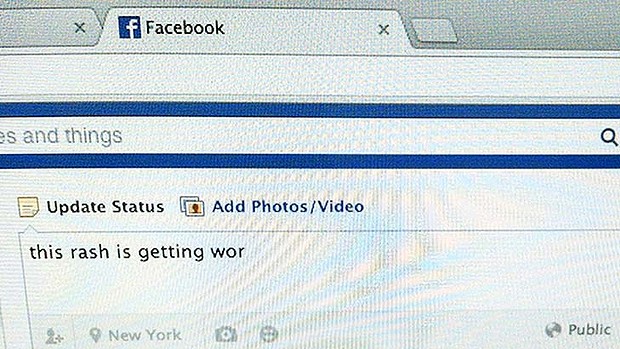SMH
December 17, 2013

A couple of months ago, a friend of mine asked on Facebook:
“Do you think that Facebook tracks the stuff that people type and then erase before hitting <enter>? (or the ‘post’ button)”
The NSA is monitoring things we have actually put online. Facebook, on the other hand, is analysing thoughts that we have intentionally chosen not to share.
Good question.
We spend a lot of time thinking about what to post on Facebook. Should you argue that political point your high school friend made? Do your friends really want to see yet another photo of your cat (or baby)? Most of us have, at one time or another, started writing something and then, probably wisely, changed our minds.
Unfortunately, the code that powers Facebook still knows what you typed – even if you decide not to publish it. It turns out the things you explicitly choose not to share aren’t entirely private.
Facebook calls these unposted thoughts “self-censorship”, and insights into how it collects these non-posts can be found in a recent paper written by two Facebookers. Sauvik Das, a PhD student at Carnegie Mellon and summer software engineer intern at Facebook, and Adam Kramer, a Facebook data scientist, have put online an article presenting their study of the self-censorship behaviour collected from 5 million English-speaking Facebook users. It reveals a lot about how Facebook monitors our unshared thoughts and what it thinks about them.
The study examined aborted status updates, posts on other people’s timelines and comments on others’ posts. To collect the text you type, Facebook sends code to your browser. That code automatically analyses what you type into any text box and reports metadata back to Facebook.
Storing text as you type isn’t uncommon on other websites. For example, if you use Gmail, your draft messages are automatically saved as you type them. Even if you close the browser without saving, you can usually find a (nearly) complete copy of the email you were typing in your drafts folder. Facebook is using essentially the same technology here. The difference is that Google is saving your messages to help you. Facebook users don’t expect their unposted thoughts to be collected, nor do they benefit from it.
It is not clear to the average reader how this data collection is covered by Facebook’s privacy policy. In Facebook’s Data Use Policy, under a section called “Information we receive and how it is used“, it’s made clear that the company collects information you choose to share or when you “view or otherwise interact with things”. But nothing suggests that it collects content you explicitly don‘t share. Typing and deleting text in a box could be considered a type of interaction, but I suspect very few of us would expect that data to be saved. When I reached out to Facebook, a representative told me the company believes this self-censorship is a type of interaction covered by the policy.
 Daily Stormer The Most Censored Publication in History
Daily Stormer The Most Censored Publication in History


